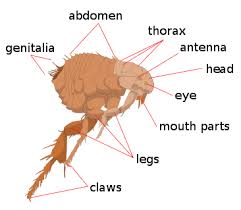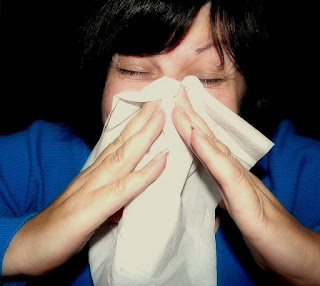What if you get cold and what is home remedies for cold symptoms? here some ideas to get cold care.
Cold that usually attacks during the autumn or winter .This kind of cold symptoms is caused by infection of the upper respiratory tract and is caused by a virus. There is no known cure for the common cold, and treatments are generally intended to provide relief from the symptoms.
To cure this fever must be taken seriously because it is associated with an infection in the throat.
Most colds but disappear spontaneously within five to seven days. If your cold lasts more than that and the symptoms do not diminish over time, see your doctor as it may be a sign of serious illness.
Cold Symptoms
A few days after the influenza virus enters the body, the symptoms become apparent.
Different people, different symptoms for common cold and symptoms can range from mild to severe and may take several days to several weeks. These included:
- Running nose (discharge can change from clear and watery to thick and yellow or green with increased infection)
- Nasal congestion
- Watery eyes
- Sneezing
- Sore throat or hoarse
- Mild or cough (with or without sputum)
- Mild fever
- Headache
- Body ache
- Fatigue
- Chills
Causes of Common Cold
The common cold is caused by a different virus. Viruses are the most common is rhinovirus and coronavirus. There are nearly 110 types of rhinovirus is responsible for over 30% of all colds. There are nearly 30 species of coronavirus although only three or four strains affecting humans. Adults are more affected by colds caused by the coronavirus.
You can get cold by making direct contact with other individuals infected (shaking hands, kissing, etc.) or touching surfaces that have been handled by an infected individuals, resulting in contamination (phone, book, laptop, etc.) and then touching your nose, eyes or mouth. The virus then goes into your body and you soon develop symptoms of colds. Colds are also transmitted through the air when someone sneezes or coughs.
Risk factors that increase your chances of catching a cold include:
Children are more susceptible to colds, especially those who attend day care and are in contact with other children who may be infected
- Children whose parents smoke
- Smoker
- People exposed to toxins such as pollution, toxic fumes, etc.
- People with weakened immune including those who have HIV, AIDS, or cancer
- High stress levels
- Certain drugs such as corticosteroids
Remedies for the Common Cold
The main goal of treatment for the common cold is to improve your symptoms and provide some quick relief. Since the cause of the common cold virus, antibiotics do not help. Remember that any medication for a cold (especially for children) should be taken only after consulting with your doctor. The drugs are more popular for colds are decongestants, antihistamines, cough suppressants or expectorants and pain relievers.
Herbal remedies for cold relief has been used since ancient times. However, never start a herbal medicine without checking with your doctor first, because many herbal react badly with conventional medicines. Some herbal remedies include:
Echinacea ?? Evidence is needed on the effects of echinacea on colds. However, recent research seems to encourage and stated that Echinacea can help some people reduce their risk of the flu and reduce the duration of colds they significantly.
Eucalyptus ?? Withdrawal steam using a few drops of eucalyptus oil in hot water can help loosen phlegm and reduce sore throat and congestion.
Peppermint ?? Peppermint contains menthol, which works as a decongestant, expectorant and helps thin the mucus and cough cure. Peppermint oil should be used with other neutral oil, and should not be used directly on the skin or ingested.
Other popular
home remedies for the common cold include the following:
- Rinse with hot water and salt to relieve sore throat or hoarse.
- Drinking ginger tea throughout the day, ginger acts as a natural decongestant and also helps relieve the pain.
- Sipping a cup of warm milk mixed with a pinch of turmeric and honey to soothe a bad throat and other flu symptoms.
Food And Drinks That Should Includes And Avoid During Cold
Apart from medicine, healthy eating has always been an easy and safe way to relieve the symptoms of colds. Some suggestions for diet for the common cold are:
- Include foods high in antioxidants and vitamin C such as fresh fruit and vegetables to boost your immunity. This not only will help against the cold but also can prevent it from recurring.
- Foods high in vitamin B complex can also help relieve the symptoms of flu.
- Avoid heavy meals are high in starch, and the food was spicy, oily, fried and processed.
- Foods rich in zinc such as oysters, pork, crab, nuts, yogurt and milk also helps reduce the intensity of cold symptoms.
- Drink plenty of fluids to keep your body hydrated and help flush out toxins. In addition to at least eight to ten glasses of water every day, you should have a fresh fruit and vegetable juices and clear soup or broth. Stay away from alcohol and caffeine because they work as diuretics and dehydrate the body even further.
- Lemon should be consumed in the form of lemon juice mixed with hot water and honey to soothe a sore throat and increase your vitamin C intake.
- Paprika, mustard, onions, and turnips that makes you run your nose and eyes water is good food for colds. Many believe that this can help loosen mucus and thus help to reduce congestion. The verdict is still out on the efficacy of this theory, but little things heat added to your diet doesn ?? t hurt when you feed a cold.
- If you are cold cause diarrhea and other digestive problems, add the eggs, mashed potatoes, bananas and cooked fruits to your diet.
Other foods that can help alleviate the symptoms of the flu include:
- Oatmeal
- Wheat bread
- Orange juice
- Chicken or vegetable soup
- Green salad
- Steamed vegetables
- Applesauce
- Decaffeinated tea
Suggestions for the Common Cold
There are some other simple advice to prevent the common cold, such as:
- Wash your hands regularly
- Exercise often to increase your overall health
- Explore options such as yoga and meditation to reduce stress levels
- Do not share towels, dishes and glasses
- Get enough sleep
Reference
Roberta Lee, Michael J. Balick, Flu for you? Common Cold, Influenza, and Traditional Medicine, EXPLORE: The Journal of Science and Healing, Volume 2, Issue 3, May 2006, Pages 252-255, ISSN 1550 to 8307, 10.1016 / j.explore.2006.03.009.



Recent Comments